
Posts Tagged ‘Natal’
The crisis precedes the promising advent
Courage is needed (we’ve already posted here 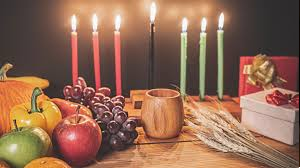 about the cardinal virtue of “fortitude”) in times of crisis, values, instability, confused social relations and many pre-occupations.
about the cardinal virtue of “fortitude”) in times of crisis, values, instability, confused social relations and many pre-occupations.
It is normal in these personal or social times for the mind to project itself into the past or future, the future generating anxieties and the past remorse or anguish, of course if misinterpreted or misplaced, because in general it is a passage to a promising future, an advent, something to come.
We can’t be suffocated by worries that haven’t materialized yet, but we can’t be so innocent or provincial as to only look at the world around us; life and the world go beyond our own horizons and there is always something promising ahead.
Byung-Chul Han wrote about the Palliative Society: pain today, reflections on the pandemic, but with a broad horizon that saw a society that wants to abolish pain and suffering, but they exist and are an inalienable part of life.
Wars, now with the prospect of a truce (see previous post), a social crisis of values and the loss of many previous conquests, is not just a sign of crisis, it is a sign that something will come, there is an advent that all of humanity is waiting for.
But everyone has their own anxieties, a future that they imagine and even a return to the past, a Paris at its peak that the Christmas lights can inspire, a Lisbon with its good national values (it’s sad that a nationalist is born there).
But this can be a lever for thinking about a sustainable future, a new era in which not only the Eurocentric world is enlightened, but also historically colonized peoples.
In African or African-American culture there are celebrations, which although they also originate in Canada and the Caribbean region, are celebrations that run from December 26 to January 1, Kwanzaa.
The values of community and family unity after a violent Watts riot (caused by police abuse of a young black man in 1966), a black professor Dr. Maulana Karnga, president of the Center for Black Studies at California State University created “matunda ya kwanza”, which means “first fruits”.
This is an example of the birth of a “good fruit” as a result of a crisis, creating a celebration with songs, dances and drumming with African drums, the reading of stories and poetry typical of the culture and a large traditional meal eaten by families or social groups.
Here, the principles of Suali culture (a traditional language in Kenya, but spoken by many African peoples) are recalled, a candlestick (Kinara) is lit with candles of various colors, there they recall the “Harambee” which means “gather all things” and “let’s do it together”.
These principles are no different from good Western culture (the kind that doesn’t colonize and respects local values and cultures), so it’s possible to think of an advent for all of humanity that goes beyond the crises and obstacles of the present.
History, parousia and false prophets
Christmas is coming and the birth of Jesus is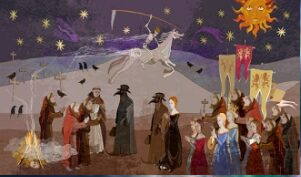 a historical fact, because there was a census ordered by the Roman emperor Caesar Augustus, and Joseph and Mary went to Bethlehem because people had to be counted in their cities of birth. As for the date, there is controversy because it would have been between 4-5 BC, when Quinine was Governor of Syria as described in the Bible (Lk. 2:2), but it is certain that the census was carried out and this was precisely the reason why Mary and Joseph went to Bethlehem, where Jesus would be born.
a historical fact, because there was a census ordered by the Roman emperor Caesar Augustus, and Joseph and Mary went to Bethlehem because people had to be counted in their cities of birth. As for the date, there is controversy because it would have been between 4-5 BC, when Quinine was Governor of Syria as described in the Bible (Lk. 2:2), but it is certain that the census was carried out and this was precisely the reason why Mary and Joseph went to Bethlehem, where Jesus would be born.
There are disputes about the dates and the accuracy of the dates (not the facts), since the calendar was changed by the Roman Empire and there would have been a three-year gap.
History is also punctuated with divine interventions, in the decadence of Rome the monasteries were born, where the culture of cooking, the first guilds and trades and also an earlier phase of printed writing took place, the final period in which the black plague occurred at the end of the 14th century, caused by the Yersinia Pestis bacillus that decimated a large part of the population at the time.
This disease, however, decimated part of the Mongol army fighting the Genoese in the city of Caffa (now Theodosia) on the Crimean Peninsula, and was the beginning of the decline of the great Mongol empire (1209-1368).
We’ve entered modernity, we’ve done some occasional reading in our posts Everyone in the same boat and If Europe wakes up by Sloterdijk, where he mentions Boccaccio’s classic work Decameron as a “small community”.
In a footnote, he quotes from Henrik Siewierki’s “A Mass for the City of Arras” (translated by Brazilian editor: Estação Liberdade in 2001), which analyzes both the psychological and political consequences of the plague. Psychologist Franz Renggli, in his book Self-Destruction by Abandonment, also developed the hypothesis that the plague had an influence on modernity, as well as the degradation of the mother-child relationship, which would have caused a kind of collective, psychosomatic immune weakness that favored the plague virus.
Someone might have thought at the time: it’s the end of times, but it was a big change and also the biblical meaning is that (when you hear about wars, revolutions): “all this must happen, but it is not yet the end” (Mt 24:6).
This whole analysis is interesting, because in the midst of the recent Pandemic (the current plague), while it was undoubtedly a scourge, it can nurture a new glade over our community (a word used by Sloterdijk), that is, the idea of mutual defense and solidarity in view of a catastrophe even greater than the one that happened.
It serves to “smooth the way”, as the Bible reading says when John, the son of Zechariah and Elizabeth, proclaimed in the desert using the words of the prophet Isaiah: “This is the voice of him who cries out in the desert: ‘Prepare the way of the Lord, make his paths straight’” (Lk 3:4) and it seems appropriate for this time of scourge and desert.
It’s important to remember that the first two weeks of Christmas commemorate not the coming of Jesus, but the new coming of the Lord.
End of wars and the magic of Christmas
Can this time of year infect the world in such a way 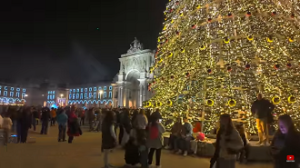 as to turn the tide of war, the scenario of this first week of December seems to say yes.
as to turn the tide of war, the scenario of this first week of December seems to say yes.
The dictator of Syria, Bashar al-Assad, who ruled Syria for almost a quarter of a century, has fallen. While the London Observatory for Human Rights says that he fled in a private plane, the Russian Foreign Ministry, a traditional ally, has declared that he has “resigned”.
The leader of a coalition of opponents, Abu Mohammed al Jolani (he now goes by his real name Ahmed Al-Shara), led the Organization for the Liberation of the Levant (Hayat Tahir al Sham, or just HTS), from extremist origins (he was linked to Al Qaeda) and adopted a more moderate stance, gaining allies.
Syria’s Prime Minister, Mohamed Ghazi al-Jalali, has declared himself willing to collaborate with the insurgents, saying that he will extend his hand to “any Syrian who is interested in the country in order to preserve its institutions”, but it is likely that he will also resign or be removed from office.
Talks are also progressing under the patronage of US President-elect Donald Trump, a meeting with President Makron of France and Zelensky of Ukraine, and the international scene has been gripped by the prospect of peace that is now apparently possible.
In Latin America, at a meeting in Montevideo last Friday (6/12), after 25 years of negotiation, the leaders of the South American bloc signed an agreement with the European Union. For Brazil, the agreement makes strategic sense to promote learning and improvement in how our productive sectors generate commodities, which are the primary goods in the production sector: agricultural, livestock, mineral and environmental, in which the country is abundant.
In short, everything seems to be building a new harmony and fostering the Christmas atmosphere, but we need a lasting peace where the sectors involved don’t feel “defeated”, we need a balanced global economy without protectionism or unfair competition and, above all, we need a frontal attack on serious social and environmental issues.
Christmas exists, the beautiful illuminations in Lisbon (video), for exemple, and many others across Europe are trying to recapture a climate of hope and peace, there’s even a movie from the film industry (it’s not a theological movie) about the Virgin Mary (it was released on September 6th) and therefore the birth of Jesus.
Courage, Christmas and the house on the rock
In philosophy, the Englishwoman Philippa Foot dealt with this aspect of moral ethics and for this reason her ethics became known as virtue ethics. We’ve done some previous posts on this, but how does it relate to Christmas and the “house on the rock”?
dealt with this aspect of moral ethics and for this reason her ethics became known as virtue ethics. We’ve done some previous posts on this, but how does it relate to Christmas and the “house on the rock”?
To face dangers and even trials (and provocations) is to be well aligned with the other two cardinal virtues: prudence and wisdom, as well as justice, but we have already said that the “just” in the Bible is not human justice, which is merciless and legalistic, because the divine contemplates mercy and forgiveness, and without it even human judges would be condemned.
Courage (or fortitude) is accompanied by prudence, the ability to pass or remove obstacles in life in order to overcome them so as not to reproduce hatred, violence and revenge, and so must produce and be led by wisdom, which is not just culture and good reading, it is looking at the Other with the dignity they have.
This is the spirit of Christmas, which commemorates the birth of the Prince of Peace, the one who was also judged and condemned by human justice (that of the ‘religious’ Pharisees and the Roman Empire, Pilate who washed his hands of it), but did not fear to speak The Truth.
In all languages and nations, this desire for love, peace and harmony between peoples never dies, but keeping it alive depends on the virtue of fortitude, and keeping it for life implies doing what gives meaning to “building the house on the rock” (Mt 7: 24-27).
This virtue emphasizes the fortitude (courage) to stand firm over life and the purpose of not giving in to contemporary inclinations: consumerism, immorality, injustices (small and large), unbelief, political and ideological hatred and recklessness.
This is not just a date, but it is a good reference for us to remember these human traits that give hope for a happier and more harmonious future civilization, an everlasting Christmas.
There’s a mood for Christmas
Among true Christians, yes, there will always be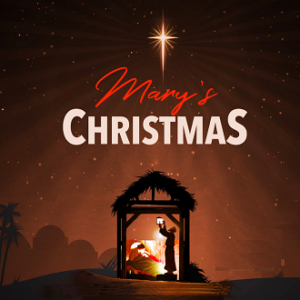 hope for a better world, where everyone can enjoy the common good, true (and impartial) justice and the humblest remembered and invited to this moment of peace and fraternization.
hope for a better world, where everyone can enjoy the common good, true (and impartial) justice and the humblest remembered and invited to this moment of peace and fraternization.
Certainly, in many parts of the world, especially among those suffering from war, scourges or misery and hunger, there will always be less peace and joy among them.
However, this should not be an obstacle to the search for the good, to reflection on the true values that make the civilizing process of humanization ever more advanced and promising, it is not utopia, it is the only possible horizon for those who are true humanists, those who do not look at the different with prejudice and disrespect.
Not limited to any social, cultural or religious group, true humanists create bonds of fraternity and bridges, not insurmountable chasms of agreements and dialogues.
There are more unacceptable things, yes war is unacceptable, there are always two groups willing to fight, there is no difference that should not be respected, yes social inequality is unacceptable, but we can get everyone to think about it and find solutions without demagoguery.
These great things are not just the result of advanced cultural reading, above all we need a feeling of solidarity, a deep look at the Other, who is neither a mirror nor the result of an allegorical or demagogic discourse, we must respect it in all its dignity.
There is a true wisdom that is guided by loving gazes on humanity as a whole and on each man (or woman) in particular, it is accessible to all minds and cultures, and can chart a path of peace and fraternity.
This Christmas is not specific to one date of the year, but it is important to remember it on this date, even religious currents that don’t celebrate it fail to recognize its importance.
There is always hope for peace, lasting joy and social justice for those who love.
It’s important to remember it on this date, even the religious currents that don’t celebrate it fail to recognize its importance.
There is always hope for peace, lasting joy and social justice for those who love.
True joy
The word used for “joy”, in the original Greek, is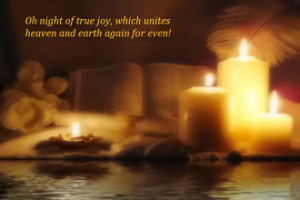 χαρά (chara), which is related to the words χάρις (charis), which is usually translated as “grace”, and χάρισμα (charisma), which means both a gift of grace, without cost, as coming from grace.
χαρά (chara), which is related to the words χάρις (charis), which is usually translated as “grace”, and χάρισμα (charisma), which means both a gift of grace, without cost, as coming from grace.
Thus there is something of “grace” in joy that differentiates it from happiness, due to the distance in understanding this term with an unnatural and objective aspect, there are those who prefer happiness as something more “solid” in times of liquid reductionism consecrated by a certain type of thought and that has even entered religious environments and thus seek it and what is objective, solid and which comes from idealism and Eurocentric thought.
Joy, peace and true asceticism are only found in hearts that have found true and divine wisdom.
The appeal to earthly goods, human achievements and all types of fleeting happiness, increasingly common in the idealist narrative, has nothing to do with joy, and if there is happiness it is fleeting and will have a cost.
Christmas and the end of the year festivities can be part of this fleeting happiness or give space to the hearts and souls that have already found perennial and eternal joy: the divine in the midst of the human.
Success and joy
Anselm Grün begins this chapter making a counterpoint, as both the German Jewish philosopher Martin Buber who said “Success is not a term from God”, and the famous psychologist Carl Jung who said that success is the greatest enemy of the transformation of the human being is a life full of successes, the monk ends by saying that “success is part of life” and we should be happy about it (Grün, 2014, p. 73).
Jewish philosopher Martin Buber who said “Success is not a term from God”, and the famous psychologist Carl Jung who said that success is the greatest enemy of the transformation of the human being is a life full of successes, the monk ends by saying that “success is part of life” and we should be happy about it (Grün, 2014, p. 73).
He considers that we can “enjoy the moment”, a joy of gratitude, a “free gift, not a merit, it is something that I perceive and am happy knowing that it happens and passes” (Grùn, 2014, p. 74).
Then he corrects and says that joy is mainly associated with creativity, quoting Aristotle and Erich Fromm, “we are satisfied with a job well done and when we realize that we have accomplished something today” (p. 75), and completes that artists are “great connoisseurs of this joy”.
Thus, there is a difference between Euphoria and true Joy, what is sought today at concerts, gyms and beauty clinics is a fleeting, fleeting success, especially when one is not looking for health and well-being. this joy that remains, I would call joy.
Recognition is also important, but it will not come from the powerful, greedy or vain, they look for spotlights and committed or even purchased success, it is not wrapped in true joy because it arises from ephemeral values and truths and therefore, that pass, but that wise minds and hearts know how to find.
In the biblical passage, the birth of Jesus, in a humble place in a small town of Bethlehem, and the recognition first by humble shepherds from the countryside and later by “kings” from the east, a clear allusion to distant peoples and of other beliefs, which announces a real joy, a jubilation and what we should remember at Christmas and the year that begins, this that can give us real joy.
This day is Christmas in Russia and declare stop war for this days.
Grün, Alselm (2014) Viver com Alegria (Life with joy). Brazil, Petrópolis: Vozes.
So it’s Christmas
This is how an English song began, the singer Simone sings a Brazilian version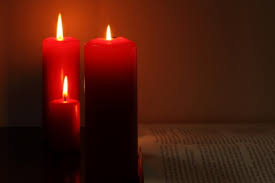 of the original lyrics by John Lennon and Yoko Ono and then a question: “And what did you do?”, I liked the song, but the lyrics sounded strange to me because after using a mystical expression from the indus.: “Harehama” she provoked with Hiroshima and Nagasaki, of the atomic bombs, and later still of Mururoa which is a Polynesian island, which in the Maori translation means patient.
of the original lyrics by John Lennon and Yoko Ono and then a question: “And what did you do?”, I liked the song, but the lyrics sounded strange to me because after using a mystical expression from the indus.: “Harehama” she provoked with Hiroshima and Nagasaki, of the atomic bombs, and later still of Mururoa which is a Polynesian island, which in the Maori translation means patient.
Recently, about 11 years ago, when the Fukushima incident happened, the tsunami that affected the atomic power plant in Japan, I started to understand and only now with the nuclear danger of the war in East Europe has the sense been completed, we cannot talk about peace in a world undermined by hatred and bombs.
Yes, hopes are renewed, but now amid mistrust, it is as if a veil were lifted from our eyes (in my case literally because I had already operated on one of the eyes), and a clear world presented itself, clear, but full of doubts and conflicts.
I would say that it is a Christmas of Mururoa, of the patience that waits and that achieves everything, but apprehensive and worried.
This is a small text that I manage to write while my eyesight is recovering, merry Christmas to those who believe, patience to those who understand the present situation and that the spirits of war and hatred disarm.
The light exists, a simple candle needs to be lit, and Christmas is light.
Christmas in China
Christmas has different connotations all over the world, the idea of a date for the birth of Jesus is the commemoration of a God who became flesh, who was among us and by divine whim was born just on a census date so that he could be contact between the men, and in David’s village where Joseph and Mary went because the census takers should be in their home towns.
the world, the idea of a date for the birth of Jesus is the commemoration of a God who became flesh, who was among us and by divine whim was born just on a census date so that he could be contact between the men, and in David’s village where Joseph and Mary went because the census takers should be in their home towns.
Also fulfilled is the prophecy (Isaiah 11:1-16) “There will come a descendant of King David, son of Jesse, who will be like a branch that sprouts from a stump, like a shoot that sprouts from the roots” and also a more incredible prophecy even though a virgin would conceive (Izaiah 7:14): “therefore the Lord himself will give you a sign, a virgin will conceive and give birth to a son, and will call him ‘God with us’”, indicating the manner of Jesus’ coming.
The translation of the word girl as virgin is contested in some Christian beliefs, but the text is clear that Mary says she does not know any man (Lk 1,34) and Joseph moves away from her so as not to denounce her as the Jewish law said for adulteress, and later returns advised by an angel, none of these facts is a coincidence due to its originality, but all are providence so that men could believe.
Christmas in China is not an official date, other festivities such as the Spring Festival or the Chinese New Year are much more celebrated and remembered, but in the city of Yiwu, for producing Christmas products for the whole world, it is seen as where Christmas is the year-round, including the lights and decorations typical of everyone, in the last ten years Christmas has started to gain popularity, but far from being a date where the birth of Jesus is celebrated, it is the traditional western consumerist period that also arrived there with the big companies that today are international in automobiles and home appliances.
However, in the city of Macau, which has Portuguese origins and influence until today, for example, the street names are in Chinese and Portuguese, some memories of the real Christmas are seen there, such as the nativity scene in Vila Coloane de Macau ( photo courtesy of a friend in Chine).
I will be undergoing eye surgery these days and unable to use a laptop, so I leave you with a Christmas message of hope in a world of peace, that men may return to the difficult path or the narrow door through which Love, Mercy and Hope pass, a fairer, more fraternal world is possible if men disarm and join hands.
The greatest of all signs
Most of those who don’t believe in a superior being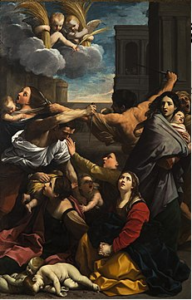 think “if God is alive why doesn’t he send us a sign”, also the passage of the rich man who had Lazarus always at his door, asked Jesus to send a sign to his family, to to know that God existed, and Jesus answered them: “they had the prophets and they did not believe”, but it is clear that they speak of a concrete visible sign.
think “if God is alive why doesn’t he send us a sign”, also the passage of the rich man who had Lazarus always at his door, asked Jesus to send a sign to his family, to to know that God existed, and Jesus answered them: “they had the prophets and they did not believe”, but it is clear that they speak of a concrete visible sign.
The reading of that time also said (1Cor, 22-24): the Greeks want wisdom (they would be today’s scientists) and the Greeks want signs (they would be today’s religionists), but divine madness is wisdom and weak things are the strong, it is not like merely human reasoning.
There is no greater madness than a God wanting to reduce himself to a man to rescue everyone, misunderstood and unwelcome, he is born in a manger and will die on the cross, the apostle Paul says pride of Christians (only the true ones, of course) and scandal for men, will he be the adult of the same child who is born in a manger and then has to flee to Egypt to avoid the slaughter of (painting by Guido Reni (1611/12) ).
Herod was confused because he imagined (like many today) that when he said that the king of the Jews was going to be born, he imagined that he would take the throne from him, and he wanted to kill him from birth, not having found him he orders to kill all the children who are still alive. on her lap, but Mary Joseph and the child had fled to Egypt.
Thus, it was not just a visible sign, it was also a human sign, says the Reading of Matthew (Mt, 1, 22): “All this took place to fulfill what the Lord had said through the prophet: “Behold, the virgin will conceive and will give birth to a son. He will be called by the name of Emmanuel, which means God is with us”, but Joseph who, having turned away from Mary because of this great sign, is warned by the angel and gives him the name of the child Jesus.
There could be even more signs in our times, some mystics believe so, but it will be preceded by much suffering, just like the revelation of Jesus we have described, and then the clearing will come.

